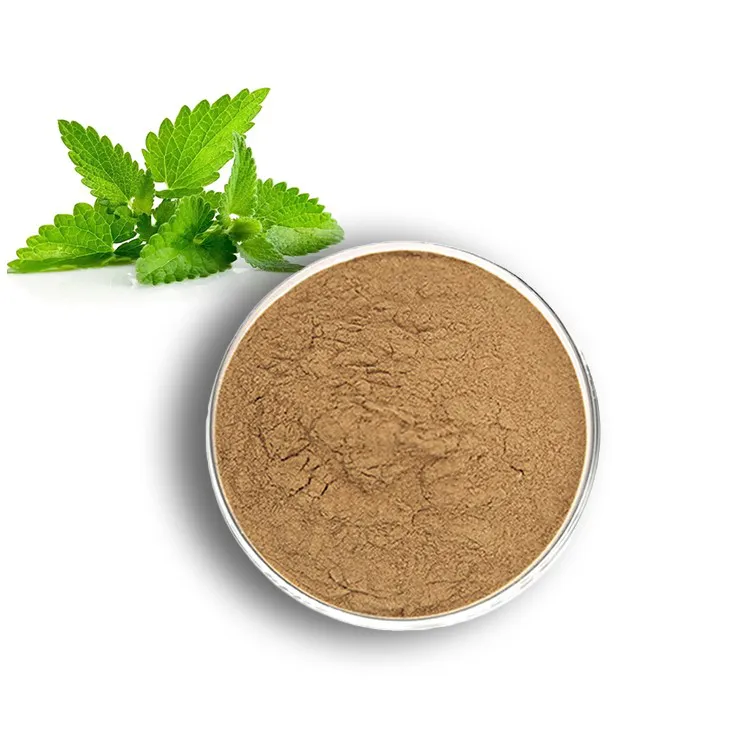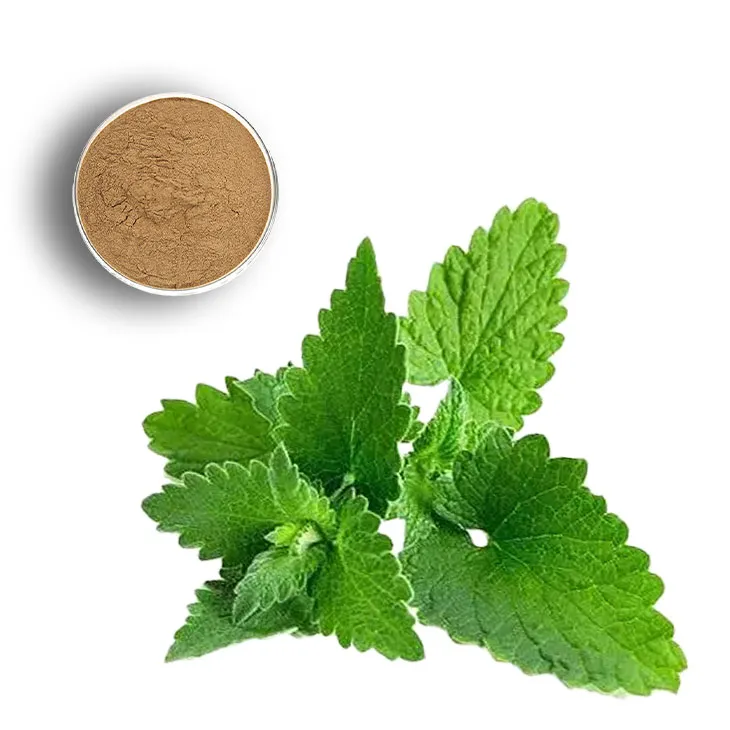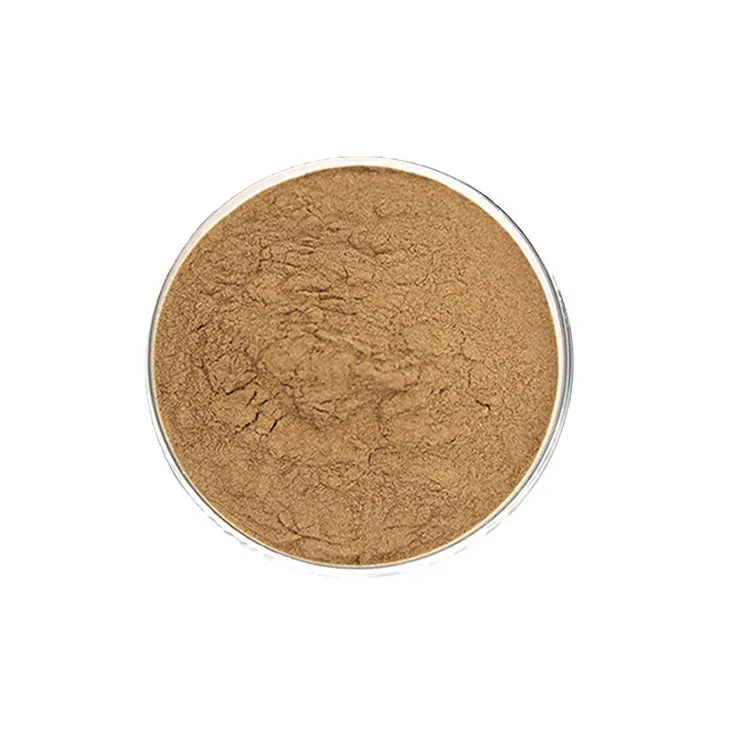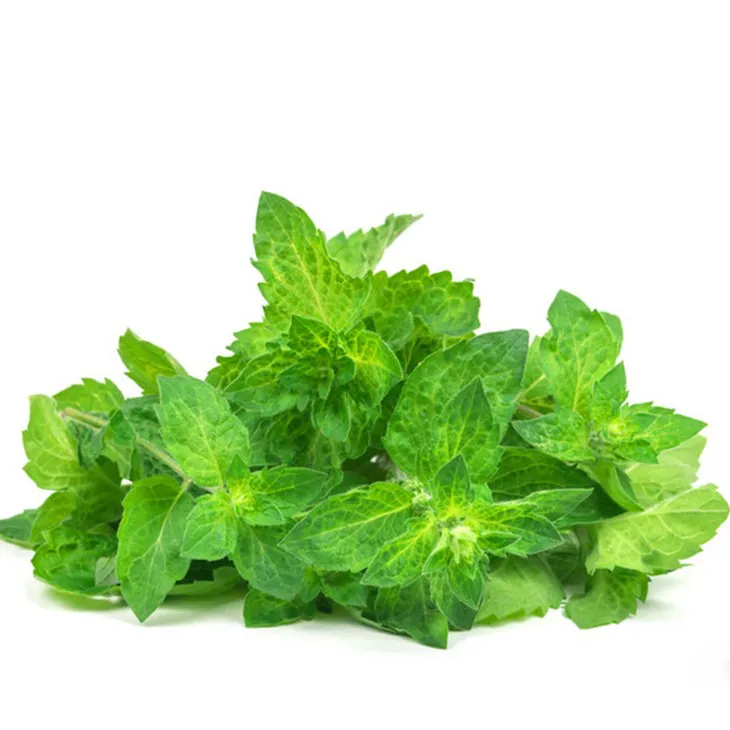- 0086-571-85302990
- sales@greenskybio.com
Benefits of Lemon Balm Extract in Cattle Feed.
2024-11-12

1. Introduction
In the world of cattle farming, the search for natural additives to enhance the health and productivity of cattle is an ongoing process. One such promising additive is Lemon Balm Extract. Lemon balm (Melissa officinalis) has a long history of use in traditional medicine for humans, and recent research has shown that it can also offer several benefits when included in cattle feed.

2. Stress Reduction in Cattle
2.1. Understanding Cattle Stress
Cattle, like all animals, are susceptible to stress. Stressors in their environment can include factors such as changes in diet, overcrowding, transportation, and exposure to extreme weather conditions. When cattle are stressed, it can have a negative impact on their growth, reproduction, and overall health. Stressed cattle may also be more prone to diseases, which can lead to significant economic losses for farmers.
2.2. How Lemon Balm Extract Helps
Lemon Balm Extract contains several bioactive compounds that have been shown to have a calming effect. These compounds interact with the cattle's nervous system, helping to reduce the physiological and behavioral signs of stress. For example, it can lower the levels of stress hormones such as cortisol in the cattle's body. This reduction in stress hormones can lead to a more relaxed state for the cattle, which in turn can improve their appetite and feed intake. A study conducted on a group of cattle showed that those fed with lemon balm extract - supplemented feed had lower stress - related behaviors such as restlessness and aggression compared to the control group.

3. Enhanced Nutrient Absorption
3.1. The Importance of Nutrient Absorption in Cattle
For cattle to grow, reproduce, and maintain good health, they need to absorb nutrients effectively from their feed. The digestive system of cattle is complex, and any factors that can improve the absorption of nutrients can have a significant impact on their productivity. Nutrients such as proteins, carbohydrates, vitamins, and minerals are essential for various physiological functions in cattle, including muscle development, milk production (in dairy cows), and immune system function.
3.2. Mechanisms of Lemon Balm Extract in Nutrient Absorption
Lemon balm extract may enhance nutrient absorption in cattle through several mechanisms. One possible way is by improving the function of the gut microbiota. The gut microbiota plays a crucial role in the digestion and absorption of nutrients. Lemon balm extract can promote the growth of beneficial bacteria in the gut, which can in turn break down feed components more efficiently, making nutrients more available for absorption. Additionally, some compounds in the lemon balm extract may directly affect the intestinal lining, increasing its permeability to nutrients. This means that more nutrients can pass through the intestinal wall and enter the bloodstream, where they can be utilized by the cattle's body. Research has indicated that cattle fed with lemon balm - supplemented feed had higher levels of certain essential nutrients in their blood compared to those on a regular diet, suggesting improved nutrient absorption.

4. Odor Reduction in Cattle Waste
4.1. The Problem of Cattle Waste Odor
Cattle waste management is a significant concern in the livestock industry. The strong odor associated with cattle waste can cause environmental pollution and nuisance to nearby communities. The odor is mainly due to the presence of various volatile organic compounds (VOCs) and ammonia in the waste. High levels of ammonia can also be harmful to the health of the cattle themselves, as well as to the environment.
4.2. Lemon Balm Extract's Role in Odor Reduction
Lemon balm extract has shown potential in reducing the unpleasant odor of cattle waste. Some of the compounds in the extract can interact with the components in the waste that are responsible for the odor. For example, it may inhibit the production or release of certain VOCs and ammonia. This can lead to a reduction in the overall odor intensity. A trial carried out on a cattle farm demonstrated that when lemon balm extract was added to the cattle feed, the odor of the waste in the barn was noticeably less offensive compared to when no extract was used. This not only benefits the environment but can also improve the relationship between the farm and the surrounding community.

5. Other Potential Benefits
In addition to the above - mentioned benefits, lemon balm extract may have other positive effects on cattle health. For instance, it could potentially have antioxidant properties. Antioxidants are important for protecting the cells of the cattle's body from oxidative damage. Oxidative stress can occur due to various factors such as exposure to toxins and normal metabolic processes. By reducing oxidative stress, lemon balm extract may contribute to the long - term health of the cattle. There is also some evidence to suggest that it may have anti - inflammatory effects, which could be beneficial in cases where cattle may be experiencing inflammation due to infections or other factors.
6. Dosage and Administration
When considering the use of lemon balm extract in cattle feed, it is important to determine the appropriate dosage. The optimal dosage may depend on factors such as the age, weight, and breed of the cattle, as well as the specific goals of supplementation (e.g., stress reduction, nutrient absorption improvement). Typically, it is recommended to start with a low dosage and gradually increase it while monitoring the cattle's response. The extract can be administered in various forms, such as a powder mixed with the regular feed or as a liquid supplement. It is also crucial to ensure that the quality of the lemon balm extract is high, and it is sourced from reliable suppliers.
7. Conclusion
In conclusion, lemon balm extract offers several potential benefits when included in cattle feed. It can help reduce stress in cattle, enhance nutrient absorption, and reduce the odor of cattle waste. Additionally, there may be other positive effects on cattle health, such as antioxidant and anti - inflammatory properties. However, more research is still needed to fully understand all the mechanisms and long - term effects of using lemon balm extract in cattle feed. With proper dosage and administration, it could be a valuable addition to modern cattle farming practices, contributing to the well - being of the cattle and the sustainability of the livestock industry.
FAQ:
Q1: How does lemon balm extract help in reducing stress in cattle?
There are several ways. Lemon balm extract contains certain compounds that may have a calming effect on the nervous system of cattle. These compounds interact with the physiological mechanisms in the animals' bodies, perhaps by modulating neurotransmitter levels or hormonal balance, which in turn helps to reduce stress responses.
Q2: Can lemon balm extract improve the growth rate of cattle?
Indirectly, it may. Since it helps in better nutrient absorption, cattle are able to utilize the nutrients from their feed more efficiently. This can potentially lead to improved growth, as they are getting more of the essential elements for growth such as proteins, carbohydrates, and minerals from their feed.
Q3: How does lemon balm extract contribute to better nutrient absorption in cattle?
It could be that lemon balm extract affects the digestive processes in the cattle's gut. It may enhance the function of the digestive enzymes or improve the gut microbiota environment. A healthier gut environment and more effective enzyme action can lead to better breakdown and absorption of nutrients from the feed.
Q4: Is there a specific dosage of lemon balm extract that should be used in cattle feed?
The optimal dosage may vary depending on factors such as the age, weight, and health status of the cattle, as well as the composition of the overall feed. Generally, it is determined through careful experimentation and research. Farmers and veterinarians need to closely monitor the cattle when introducing lemon balm extract to the feed to find the most effective and safe dosage.
Q5: Are there any potential side effects of using lemon balm extract in cattle feed?
So far, there are no known major side effects when used appropriately. However, if the dosage is too high, it may cause some minor digestive disturbances in some cases. Also, in very rare instances, individual animals may have an allergic reaction to the extract, but this is not common.
Related literature
- The Effects of Herbal Extracts on Livestock Health and Performance"
- "Lemon Balm: Properties and Applications in Animal Nutrition"
- "Beneficial Herbs in Cattle Feed: A Review"
- ▶ Hesperidin
- ▶ citrus bioflavonoids
- ▶ plant extract
- ▶ lycopene
- ▶ Diosmin
- ▶ Grape seed extract
- ▶ Sea buckthorn Juice Powder
- ▶ Beetroot powder
- ▶ Hops Extract
- ▶ Artichoke Extract
- ▶ Reishi mushroom extract
- ▶ Astaxanthin
- ▶ Green Tea Extract
- ▶ Curcumin Extract
- ▶ Horse Chestnut Extract
- ▶ Other Problems
- ▶ Boswellia Serrata Extract
- ▶ Resveratrol Extract
- ▶ Marigold Extract
- ▶ Grape Leaf Extract
- ▶ blog3
-
Cranberry Plants and Skin - care Products.
2024-11-12
-
Red Wine Extract
2024-11-12
-
Yohimbine Bark Extract
2024-11-12
-
Honeysuckle Pollen
2024-11-12
-
Sophora Japonica Flower Extract
2024-11-12
-
Longan Extract
2024-11-12
-
Boswellia Serrata Extract
2024-11-12
-
Soy Extract
2024-11-12
-
Acerola Juice Powder
2024-11-12
-
Black Pepper Extract
2024-11-12
-
Lemon Juice Powder
2024-11-12





















